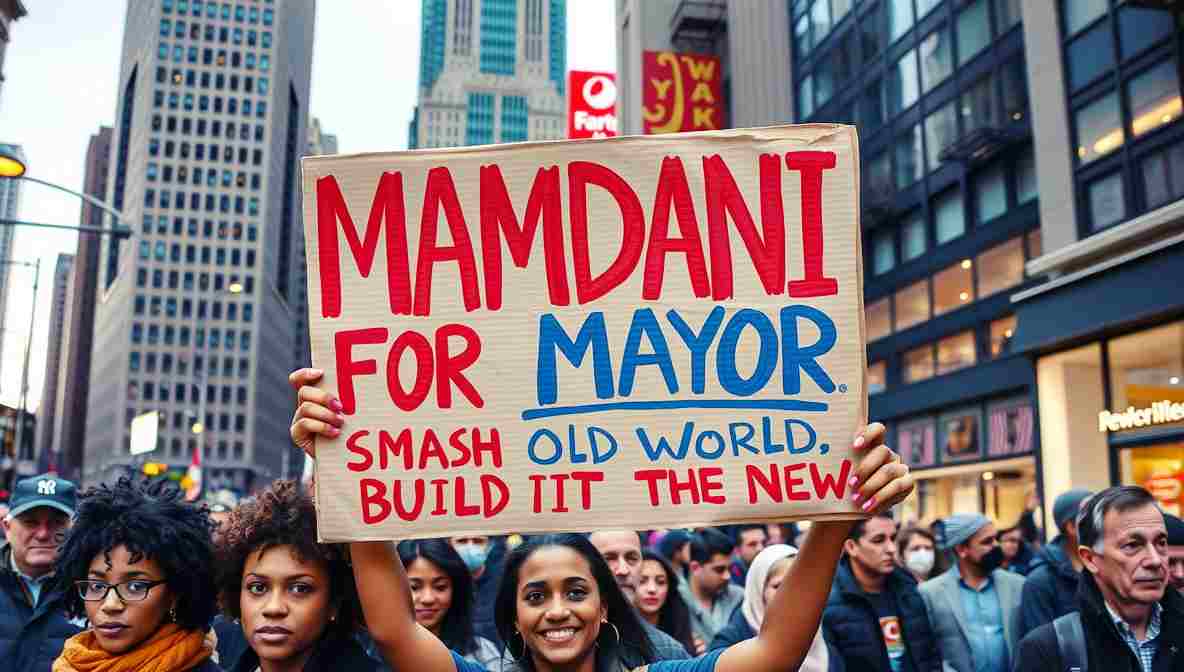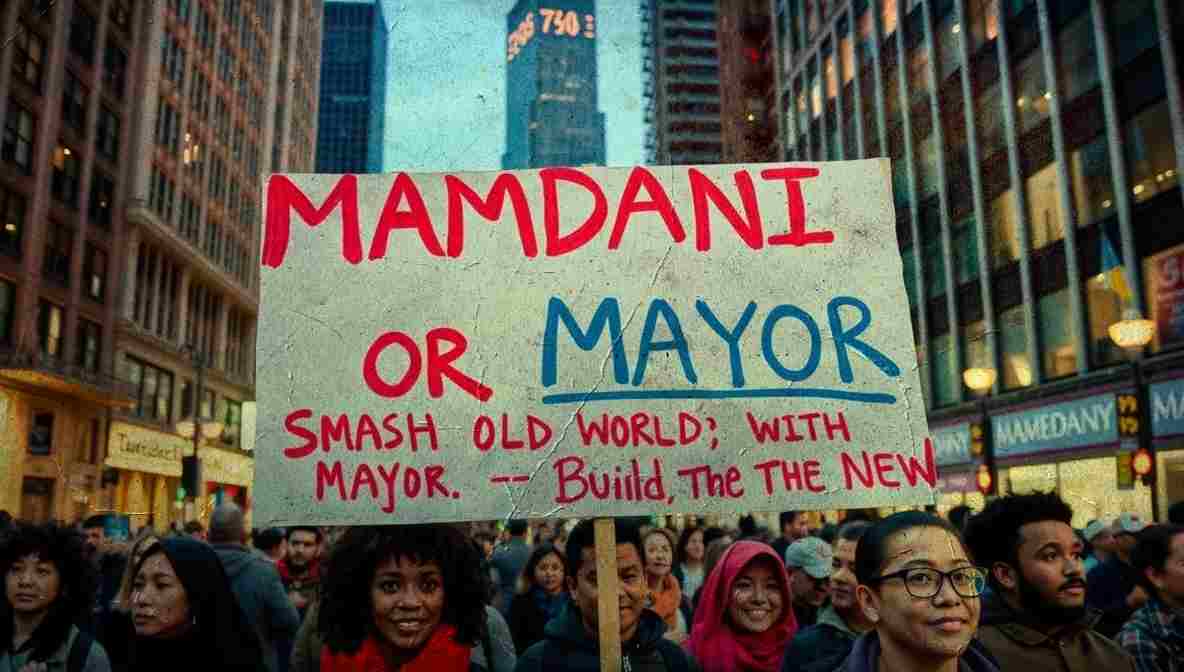Schumer’s Careful Congratulations: What His Non-Endorsement Reveals About Democratic Establishment Anxiety
Chuck Schumer’s statement congratulating Zohran Mamdani on his mayoral victory is a masterclass in political hedging. The Senate Minority Leader’s refusal to endorse Mamdani during the campaign, his evasion when asked whom he voted for, and his carefully calibrated post-election statement reveal far more about the Democratic Party’s internal fractures than any campaign speech could.
The Art of the Non-Endorsement
In American politics, silence speaks volumes. Schumer’s decision to withhold his endorsement from a fellow New York Democrat running for the city’s highest office represents a calculated political judgment with significant implications. As Senate Minority Leader and New York’s senior senator, Schumer wields enormous influence over Democratic politics in the state. His endorsement traditionally carries weight with moderate Democrats, labor unions, and institutional stakeholders.
That he chose not to offer it tells us everything about how the Democratic establishment views Mamdani and the progressive movement he represents.
Risk Assessment Over Principle
Schumer’s non-endorsement reflects a risk calculation common among establishment Democrats when facing progressive challengers. By remaining neutral, Schumer avoided alienating Mamdani’s energized base while preserving relationships with moderate donors and supporters who backed Andrew Cuomo. This strategic ambiguity allows Schumer to claim he never opposed Mamdani while avoiding responsibility for empowering a democratic socialist.
The tactic is politically astute but ideologically hollow. It positions Schumer as a weather vane rather than a leader, someone who waits to see which faction prevails before committing his support. For a figure who has spent decades cultivating an image as a political tactician, this approach makes sense. For those seeking principled leadership, it reveals the emptiness at the core of establishment Democratic politics.
Parsing the Post-Victory Statement
Schumer’s congratulatory statement deserves close textual analysis, as every word was chosen with lawyerly precision to navigate competing political imperatives.
Acknowledging Victory While Avoiding Ideology
Notice what Schumer praises: Mamdani’s focus on the cost-of-living crisis and working families. These are safe, universally acceptable Democratic priorities. Schumer carefully avoids mentioning Mamdani’s democratic socialist identity, his calls for massive public housing expansion, his support for fare-free transit, or any of the specific policy proposals that animated his campaign.
This rhetorical strategy allows Schumer to congratulate Mamdani without endorsing his ideology. It’s the political equivalent of complimenting someone’s work ethic while studiously avoiding comment on their actual work product. By framing Mamdani’s victory in terms of conventional Democratic messaging about working families and economic security, Schumer domesticates a campaign that was explicitly radical.
The Trump Deflection
Schumer’s insertion of Trump into his assessment of the cost-of-living crisis serves multiple purposes. First, it allows him to pivot from Mamdani’s local victory to national partisan warfare, reminding voters that Democrats remain the anti-Trump party regardless of internal ideological differences. Second, it provides cover for Schumer’s non-endorsement by suggesting that Trump, not moderate Democrats like Schumer, represents the real obstacle to economic justice.
This framing is politically clever but analytically dishonest. New York City’s affordability crisis predates Trump’s second term and stems from decades of policy choices made by Democrats who controlled city government. High housing costs result from restrictive zoning laws, inadequate public housing investment, and prioritization of real estate development over tenant protection–all policy areas where Democratic mayors and governors, including Andrew Cuomo, bear responsibility.
By blaming Trump for a crisis that local Democratic leadership helped create, Schumer deflects attention from the policy failures that made Mamdani’s candidacy viable in the first place.
The “Collaborative” Past: What It Means
Schumer’s reference to having “worked collaboratively” with Mamdani during his time as a state assemblyman is revealing. The phrase implies a working relationship while carefully avoiding any suggestion of ideological alignment or personal warmth. In political terminology, “worked collaboratively” is what you say about colleagues with whom you have functional but not friendly relationships.
Building Bridges After Staying Silent
The statement’s concluding promise to “build on that partnership to keep New York City strong, fair, more affordable, and thriving” represents Schumer’s attempt to establish a working relationship with Mamdani now that his victory is undeniable. This is standard political practice: withhold endorsement during the race to preserve optionality, then embrace the winner afterward to maintain influence and access.
For Mamdani, Schumer’s offer of partnership comes with strings attached. The Senate Minority Leader controls relationships with the Democratic Senatorial Campaign Committee, maintains connections to major donors, and influences federal funding priorities. Mamdani needs these resources to govern effectively, especially given Trump’s threats to cut federal aid to New York City.
But accepting Schumer’s partnership means navigating the expectations that come with it. Schumer will expect Mamdani to moderate his positions, avoid embarrassing the national Democratic Party, and demonstrate that progressive policies can work without triggering backlash that hurts Democrats elsewhere. These are reasonable asks from Schumer’s perspective but represent potential constraints on Mamdani’s ability to implement his agenda.
What This Reveals About Democratic Party Tensions
Schumer’s handling of Mamdani’s candidacy illuminates the fundamental tension currently tearing at the Democratic coalition. The party contains two increasingly incompatible factions: an establishment wing that prioritizes electability, moderation, and maintaining relationships with corporate donors, and a progressive wing that demands structural economic reform and rejects compromise with corporate interests.
The Establishment’s Progressive Problem
Establishment Democrats like Schumer face a strategic dilemma. They recognize that progressive energy drives Democratic turnout in blue areas and that young voters increasingly embrace progressive positions. Completely alienating progressives risks depressing turnout and ceding the party’s future to more radical voices.
Yet establishment Democrats also fear that progressive victories empower candidates whose policies they view as economically unworkable and politically toxic in swing districts. They worry that empowering democratic socialists in places like New York City will allow Republicans to paint all Democrats as radical leftists, hurting moderate candidates in purple districts.
This tension produces the exact paralysis we see in Schumer’s non-endorsement. He couldn’t endorse Cuomo without alienating progressives, couldn’t endorse Mamdani without alarming moderates, and couldn’t stay silent without appearing cowardly. So he chose strategic ambiguity followed by obligatory congratulations.
The Broader Pattern of Establishment Non-Endorsements
Schumer’s approach mirrors a pattern we’ve seen across Democratic politics when establishment figures face progressive challengers. In recent high-profile races, party leaders have increasingly declined to endorse in primaries, waited to see who wins, and then offered carefully worded support to victors.
Risk Aversion as Strategy
This pattern reflects how thoroughly risk-averse the Democratic establishment has become. Rather than making affirmative cases for candidates who share their ideological vision, establishment leaders increasingly adopt a “wait and see” posture that allows them to maintain relationships across factional lines while abdicating leadership responsibility.
The strategy works in the short term. Schumer avoided antagonizing either Mamdani’s supporters or Cuomo’s backers, preserved his ability to work with the winner, and maintained his reputation as a savvy political operator who doesn’t pick losing fights.
But this approach has costs. It signals to voters that establishment Democrats lack conviction and will support whoever wins rather than fighting for specific policies or principles. It empowers insurgent candidates who can position themselves as authentic alternatives to calculating party leaders. And it prevents the party from developing coherent messaging or ideological direction because leaders won’t commit to positions until outcomes are certain.
Implications for Progressive Governance
Schumer’s statement, while congratulatory in tone, establishes parameters for Mamdani’s mayoralty. By emphasizing their past collaboration and future partnership, Schumer signals his expectation that Mamdani will govern as a pragmatist who works within existing systems rather than a revolutionary who seeks to transform them.
The Co-optation Strategy
This represents a time-tested establishment strategy for managing progressive victories: embrace the winner, offer support and resources, and gradually socialize them into accepting the constraints and compromises that characterize mainstream Democratic governance. The hope is that Mamdani, once confronted with the realities of governing a complex city with limited resources and hostile federal oversight, will moderate his positions and become a more conventional Democrat.
Whether this strategy succeeds depends largely on Mamdani himself and the strength of the progressive infrastructure supporting him. If he maintains close relationships with grassroots organizations and resists pressure to compromise on core priorities, he may govern as the transformational mayor his supporters expect. If he prioritizes maintaining relationships with establishment figures like Schumer and focuses on incremental wins over structural reform, he risks disappointing the coalition that elected him.
The Accountability Gap
One of the most troubling aspects of Schumer’s approach is the accountability gap it creates. When asked directly whom he voted for, Schumer refused to answer. This secrecy is antithetical to democratic norms. Voters have a right to know where their representatives stand, especially on high-profile races in their own states.
Transparency as Democratic Duty
Schumer’s evasion sets a troubling precedent. If Senate leaders can decline to disclose their positions on major races, voters lose the ability to hold them accountable for their political judgments. This opacity allows politicians to avoid taking positions while claiming credit for whatever outcome occurs.
Compare Schumer’s approach to Barack Obama’s explicit endorsements of candidates he supports. Obama’s willingness to put his political capital behind specific candidates allows voters to understand his political vision and hold him accountable if those candidates fail. Schumer’s refusal to do the same reveals a politician more concerned with preserving personal flexibility than providing democratic accountability.
Looking Forward: Coexistence or Confrontation?
Schumer’s statement represents an opening bid in what will be a complex relationship between New York’s establishment Democratic leadership and its new progressive mayor. The question is whether this relationship develops into genuine partnership or performative cooperation masking fundamental disagreement.
The Federal Funding Leverage
Schumer holds significant leverage over Mamdani through his influence over federal funding. New York City depends on billions in federal aid for transportation, housing, public safety, and social services. With Trump threatening to cut federal funding, Mamdani will need Schumer’s help securing and protecting these resources.
This dependence gives Schumer influence over how aggressively Mamdani pursues his progressive agenda. If Mamdani’s policies or rhetoric antagonize moderate Democrats whose support Schumer needs for federal legislation, Schumer can subtly signal his displeasure through reduced advocacy for New York City priorities.
The dynamic creates a built-in moderating pressure on progressive governance. Mamdani must balance his commitment to transformational change against his need for federal resources that establishment Democrats control. This tension will define his mayoralty and test whether progressive politicians can implement radical agendas while operating within systems designed to resist radical change.
Conclusion: Hedging as Governing Philosophy
Chuck Schumer’s careful, calculated response to Zohran Mamdani’s victory encapsulates the Democratic establishment’s broader approach to progressive insurgencies: avoid commitment during the fight, embrace the winner afterward, and hope to moderate their governing through partnership and resource control.
This strategy reflects political savvy but ideological bankruptcy. It allows establishment Democrats to maintain power and relationships without ever taking principled stands or fighting for specific visions of Democratic governance. It produces a party leadership that follows rather than leads, that hedges rather than commits, and that prioritizes survival over vision.
For voters seeking authentic leadership and clear political direction, Schumer’s statement offers little encouragement. For those studying how establishment power operates to contain progressive change even after electoral victories, it provides a perfect case study. The most revealing political statements are often not the speeches politicians give to supporters, but the carefully worded congratulations they offer to victors they never supported.



